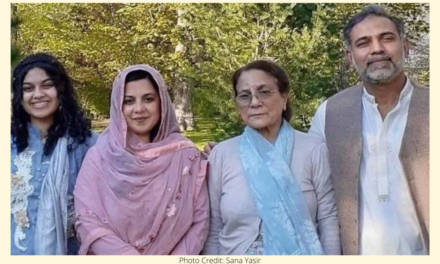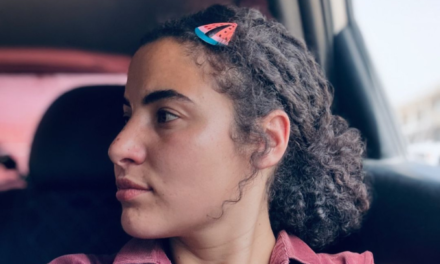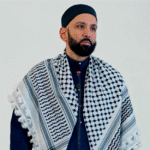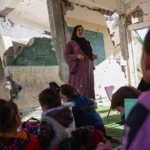Illustration by Lily Werner. Sodexo hasn’t provided Halal dining options for Ramadan since 2020.
Although Marquette University has been providing dining options for vegetarian and meat eaters, they haven’t offered Halal dining options for Ramadan in the past few years.
“Zabiha food is a term used in Islamic dietary law. It is a term which indicates that an animal has been slaughtered according to Islamic dietary requirements on cleanliness, ritual slaughter of food, and our connection to the earth and God,” Sameer Ali, a Muslim campus minister at Marquette University, said.
The intent is to minimize the animal’s suffering and provide a humane way of slaughtering. The meat must also be free from impurities and processed according to Islamic dietary laws.
Starting March 23, there will be Zabiha halal options at Schroder Dining Hall during lunch (11 a.m. – 2 p.m.) and dinner (6 p.m. – 9 p.m.). There will be additional to-go options for students to begin their fast with or for a late-night meal. Students will need to ask for halal meat separately in the dining hall and will be presented with the option of chicken or beef. Campus ministry will also provide snacks and water bottles for students to break their fast near the Muslim prayer room throughout the month.
Ramadan is the ninth month of the Islamic calendar and a time when Muslims fast from sunrise to sunset. During this time, they stay away from food, drink and other physical needs and instead focus on spiritual reflection and devotion to God.
During Ramadan, it is a time for spiritual purification and getting closer to God, so consuming halal food is an important process for some. Additionally, consuming haram (forbidden) food — items that are prohibited or considered sinful under Islamic dietary laws such as alcohol and pork— during Ramadan may invalidate the fast and potentially take away the spiritual benefits. Thus, Muslims work to ensure that the food they consume throughout Ramadan and the year is halal.
Melanie Vianes, general manager of Sodexo at Marquette, said dining services is happy to offer Halal options on campus starting during Ramadan. Vianes said Sodexo partnered with Ali and Campus Ministry to determine how to best fit the needs of students.
“Prior to 2020, we also offered Halal options by request and are grateful we can provide this option once again. We look forward to continuing our partnership with Campus Ministry and looking at more ways we can be a resource for students and the college experience,” Vianes said in an email.
“It is a need of the Muslim students who practice their faith to have Zabiha halal meat available to them at the dining halls,” Ali said.
Ali has been working with the Campus Ministry and Sodexo team for the past few months to arrange the halal options in Schroder Dining Hall.
“To me, Ramadan is a month of spirituality, holiness and peace. By providing halal food in the dining halls, you promote a more culturally diverse and welcoming environment for all the students,” Dana Sharqawi, a senior in the College of Health Sciences, said.
Sharqawi said that adding halal options in dining halls during Ramadan can allow more students to feel welcome and supported on campus. She said that though there may be challenges with this process, she is hopeful for the future of these efforts.
“By taking efforts to advance the needs for the Muslim students on campus, you can have a positive impact on their academic success, social integration, and overall well-being. I am glad to see that initiative being taken by Sameer Ali and know that his efforts will create a more inclusive and supportive space on campus for the Muslim students,” Sharqawi said.
For students such as Labeeb Awan, a first-year in the College of Arts & Sciences, said that it will make life easier for Muslims on campus without worrying about finding halal options or driving home to get a meal in.
Before this, students like Awan would have to eat the vegetarian options provided or bend specific halal rules they were not comfortable aligning with. Awan said Ali’s efforts can bring more Muslims to campus and create a more friendly environment for Muslim students.
“Ramadan to me teaches me patience. After every Ramadan I feel as if I have become a better Muslim throughout the month and have a feeling of wanting to continue to get closer to my religion,” Awan said.
Awan said he is hopeful for the future of Muslim life at Marquette with this new addition and hopes to see more changes going forward.
“We already have a prayer room and ablution stations for the Muslim students, and this will be an added service to meet their religious needs,” Ali said.
While the addition of halal dining options is a great addition, Awan said that he hopes for a more permanent solution in the near future.
“We have had to wait over a decade to get ablution stations and even longer for halal options in the dining halls. Marquette highlights the importance of promoting diversity and inclusion across campus, so expanding the prayer room and creating permanent dining options for Muslim students is just a start. Muslim students should feel included, so let’s not stop here,” Awan said.
By Uzair Qhavi, News Reporter, Marquette Wire














